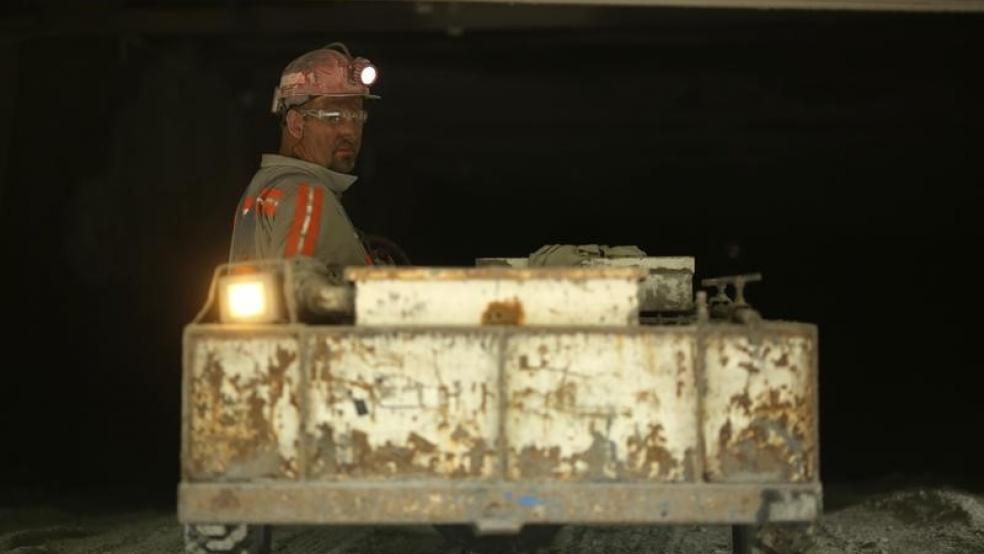The Obama Administration carefully calibrated its final version of the Clean Power Plan to placate the concerns of some major coal producing states, especially in setting deadlines for achieving long-term reductions in greenhouse gas emissions.
Some states like Kentucky and North Dakota, which heavily rely on coal for power, saw their mandated carbon emissions reduction targets actually jump by as much as 22 percent.
Related: Which States Get Hit Hardest by Obama’s New Energy Rule?
However, for all the considerations by the Environmental Protection Agency and the White House, the plan sets much tougher targets for some important swing states that may prove crucial to determining the outcome of the 2016 presidential election.
Climate change has taken a back seat in most presidential and congressional campaigns, and was hardly mentioned in the 2012 election. Now, with the formal unveiling last week of Obama’s new Clean Power initiative, governors and lawmakers from major coal producing states are vowing to challenge the tough new standards on the campaign trail as well as in the courts.
The impact of the final rule on the political map for 2016 is varied.
For example, Indiana, Missouri and Ohio – three politically pivotal states that produce large amounts of coal power -- are being asked to make larger reductions in their emissions under the final rule than they had been required to do under the earlier preliminary rule, according to a new analysis by the Brooking Institution.
While Indiana and Missouri have leaned Republican in recent presidential battles, Ohio is the electoral crown jewel of the Midwest that perennially helps to determine the outcome of hard-fought presidential contests. Ohio Gov. John Kasich, a candidate for the Republican presidential nomination, signaled over the weekend that while his state is committed to utilizing alternative sources of energy to reduce global warming, “we don’t want to destroy people’s jobs, based on some theory that’s not proven.”
Related: Obama: This May Be ‘The Last Generation’ That Can Stop Climate Change
Other swing states -- including Colorado, Iowa, Michigan, Pennsylvania and Wisconsin -- saw no change between the preliminary and final rules of the Clean Power regulations, according to the Brookings study, but nevertheless they all face a tough compliance regimen.
Pennsylvania has moved toward the use of gas in producing electricity, but the state still retains a large coal-production industry – all but assuring that the new rule will be controversial there. Colorado is home to a major clean air movement, and it will be hard for opponents of the new rule to get much traction there. But other campaign battleground states in the Rust Belt with Republican governors, including Michigan and Wisconsin, may bridle at provisions of the new rule.
Wisconsin Gov. Scott Walker, who is among the top tier of Republican presidential candidates, has regularly lashed out at the Obama administration for excessive government regulations and executive orders and has vowed to shift federal authority back to the states if he is elected president. The Clean power regulations likely would be a big environmental target for him if he makes it to the general election.
Democratic presidential candidates including former secretary of state Hillary Clinton, Sen. Bernie Sanders of Vermont and former Maryland governor Martin O’Malley all support the Clean Power plan to varying degrees.
“I think the Republican line more generally is to try to just sort of create a feeling of agnosticism about climate change in general and what we need to do about it, but suggest that what the EPA and the Obama administration currently is doing is just a terrible way to address it – and a job-killing way of doing it,” said Brookings Institution fellow Philip A. Wallach, the author of the study on the political implications of the Clean Power program.
Related: The High Cost of Climate Change – Wildfires Burn through the Forests Service Budget
While the coal mining industry and coal-fired utilities have steadily declined over the past decade, “King Coal” has remained politically potent in the U.S. Capitol and state houses across the country. Senate Majority Leader Mitch McConnell of Kentucky, a Republican from a major coal producing state, has vowed to lead a national campaign to topple the president’s new coal rules.
The controversial 1,560-page plan, which calls for sharp reductions in carbon emissions from states that have not made the transition to cleaner forms of energy, is being challenged by 16 states’ attorneys general. Utility and coal industry advocates warn that the Obama administration’s signature plan for combatting climate change could result in U.S. coal production plunging to levels not seen since the 1970s.
Assessing the potency of the Clean Power Plan as a political issue, Wallach said, “For Republicans, the Clean Power Plan is a prominent example of what they consider to be executive branch overreach in service of inefficient and economically counterproductive regulation.”
Related: Did Kasich Just Do an About-Face on Climate Change?
“For Democrats,” he added, the issue looks like an opportunity to spotlight the GOP’s “‘backwardness’ by making the discussion about prominent Republican denials that climate change represents any kind of appropriate object for government concern.”
The following chart shows how three pivotal states benefited from changes made to the preliminary rule, as measured by pounds per megawatt hours:

A chart of swing states that saw no change between the preliminary and final rule, but still face tough compliance requirements:






